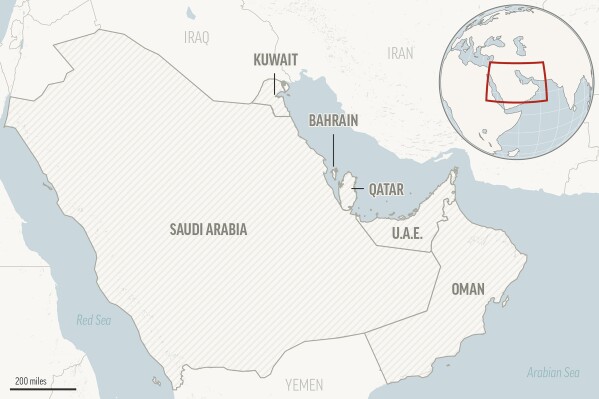Aldi has unveiled an £800m investment to open new stores across the country, as the gap between the German discounter and Asda narrows following a year of record sales.
Aldi said it planned to open 23 new stores by the end of the year in areas such as Muswell Hill in north London and Caterham, Surrey, after sales surged by 15pc last year to a record £17.9bn.
Giles Hurley, of Aldi, said: “There are opportunities everywhere. Clearly, we look at our penetration in the South of the country and we can see there is more opportunity.”
Having overtaken Morrisons in market share terms in 2022, the gap is now narrowing between Aldi and Asda, the UK’s third-largest supermarket, raising the prospect that Aldi could soon overtake the Leeds-based group.
Aldi’s market share of UK grocery sales has risen from 9.3pc to 10pc since the beginning of the year while Asda’s share has fallen from 13.7pc to 12.6pc. Aldi said it had invested almost £100m in more than 300 price cuts in the last three months.
Mr Hurley said: “Market share is interesting, and of course, we look at it as a business, and there are various milestones in our journey of growth, but it’s not a target. It’s not an aim. Our focus is on growing our business, and the outputs will be what they will be.”
Asda has been beset by falling sales, technological disruption, staff revolts and concerns over billions of pounds of debts left over from its highly leveraged takeover by the brothers Mohsin and Zuber Issa and private equity firm TDR Capital in 2021.
Its chairman, Lord Rose, admitted last month he was “embarrassed” with Asda’s recent performance.
Rival supermarkets have ramped price-matching campaigns in an attempt to fight back against the rise of the discounters. However, Mr Hurley dismissed these moves.
He said: “I’m delighted that full-price, more expensive supermarkets have recognised us as the benchmark. These revolving price-matching schemes in full price supermarkets are a game of chance for customers. You know, they aren’t consistent. They do change. And our customers tell us they want certainty.”
He added that shoppers have been trading up to more premium own-label products in recent months, signalling that intense pressure on the cost of living may be easing.
He said: “I’m careful about a longer-term outlook on inflation. I guess the last three years have taught me that there are a lot of things that can change and move dramatically. Commodity pressures have eased, although some commodities are spiking.”
However, while Aldi’s growth has challenged traditional “big four” supermarkets, such as Asda and Morrisons, it is facing a growing challenge from rival discounter Lidl. The latter was revealed to be the fastest growing supermarket for 12 months in a row, according to research company Kantar, while Aldi’s growth slowed.
Pre-tax profits at Aldi jumped from £152.6m to £536.7m, which Mr Hurley said was thanks to higher cost savings across the business.
Aldi’s profit margin increased significantly, rising from 1.2pc in 2022 to 3.1pc last year.
Retail analyst Ged Futter said this was likely down to price increases on its shelves. He said: “They are not as competitive as they were before. I don’t doubt that there’s a price gap [with rivals], but the price gap now is probably less than it was before.”
Research by Which last spring showed that Aldi and Lidl had more than doubled the price of some everyday groceries in the early months of 2023.
Aldi’s expansion push comes as the discounter is plotting to increase its store estate from more than 1,000 stores to 1,500 across the country.
Pre-tax profits jumped to £536.7m last year from £152.6m in 2022 due to higher cost savings across the business.
The company has been lobbying Sir Keir Starmer in an attempt to speed up planning permission for new supermarkets as it battles to get plans approved by local councils. George Brown, Aldi’s national real estate director, said he had met with the Prime Minister’s senior special adviser last week.
The supermarket has previously warned that excess red tape and planning objections by rivals were constraining the speed at which it could expand across the UK.
Mr Hurley said: “The competitor objections do slow the planning process down. What’s important to stress, though, is that it doesn’t in any way change our appetite or will to grow the business.
“From our side, if planning is dragged out over a long period, there’s an expense to that and also a lost opportunity. So of course, we would welcome investments which can drive decisions more quickly.”
It added that it would also refurbish 100 existing stores and expand its distribution centres under a two-year £1.4bn investment plan.
Disclaimer: The copyright of this article belongs to the original author. Reposting this article is solely for the purpose of information dissemination and does not constitute any investment advice. If there is any infringement, please contact us immediately. We will make corrections or deletions as necessary. Thank you.



